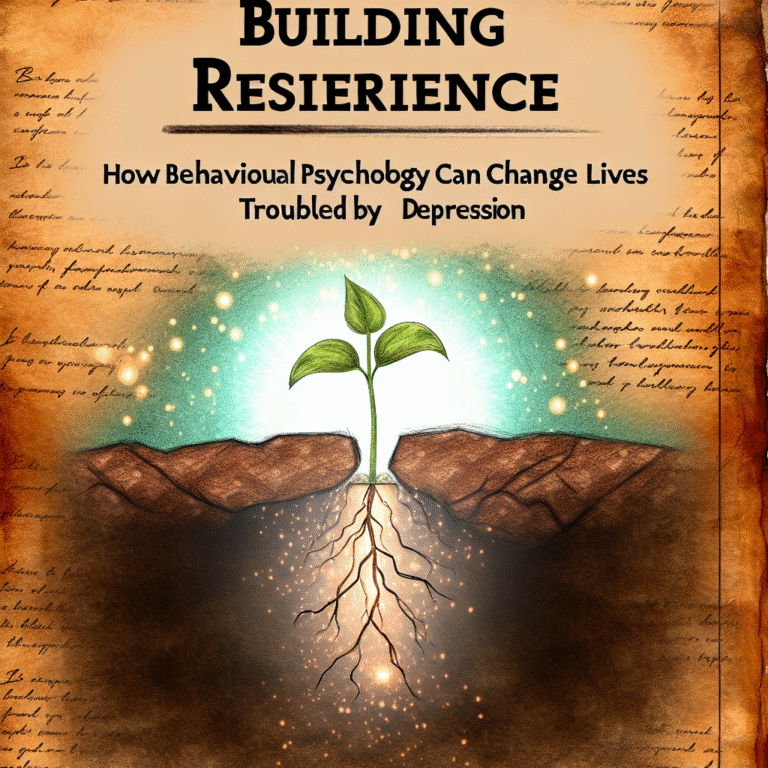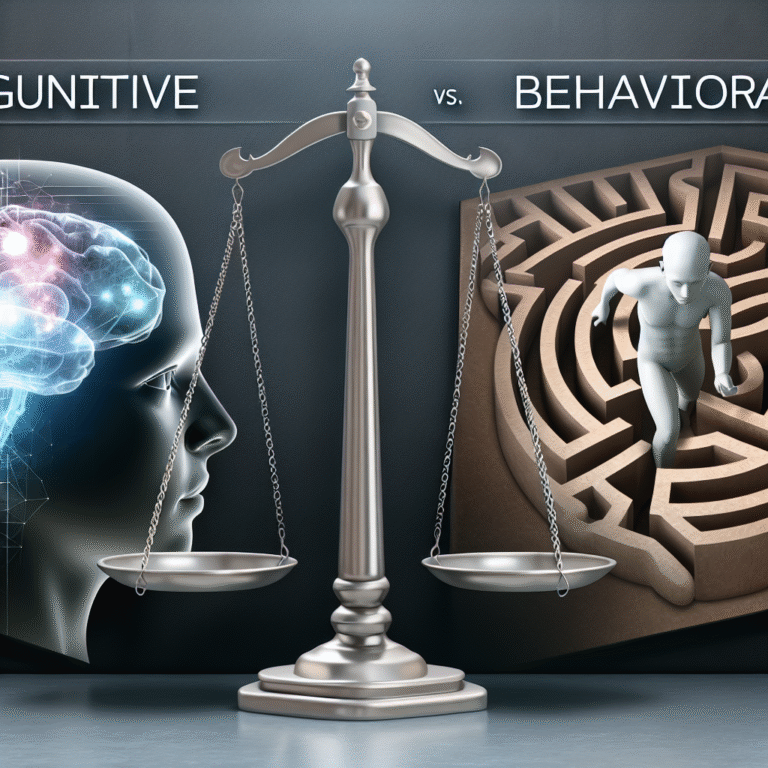Mind Over Matter: Ultimate Behavioral Approaches to Stress Management That Work
Introduction: The Power of Mind Over Matter
Stress is an inescapable part of modern life, affecting our mental health, physical well-being, and overall happiness. In our fast-paced world, the need for effective stress management strategies has never been more critical. One longstanding adage that resonates through time is "mind over matter," which speaks to the profound influence our thoughts and behaviors have on our stress levels. In this comprehensive article, we will explore Mind Over Matter: Behavioral Approaches to Stress Management That Work, providing you with practical insights, innovative strategies, and valuable case studies that demonstrate how mastering your mind can lead to a healthier, stress-free life.
Understanding Stress: The Foundation of Effective Management
Before diving into actionable behavioral approaches, it’s essential to understand what stress is and how it affects our bodies and minds. Stress is our body’s natural response to challenging situations. Whether it’s a looming deadline, financial worries, or personal issues, our bodies trigger a fight-or-flight response, releasing hormones like cortisol and adrenaline.
The impact of stress can be both physical and psychological. Chronic stress can lead to various health issues, including anxiety, depression, cardiovascular problems, and a weakened immune system. Knowing this, it’s crucial that we adopt effective stress management strategies—strategies that hinge on the principle of mind over matter.
Behavioral Approaches to Stress Management
1. Cognitive Behavioral Therapy (CBT)
Cognitive Behavioral Therapy (CBT) is one of the most widely recognized behavioral approaches to stress management. It works on the premise that our thoughts directly influence our feelings and behaviors. By identifying negative thought patterns and replacing them with positive, constructive thoughts, individuals can drastically alter their stress responses.
Case Study: Sarah’s Triumph Over Anxiety
Sarah, a 32-year-old marketing executive, struggled with work-related stress, manifesting as anxiety. After engaging in CBT, she learned to identify her catastrophic thinking patterns. Instead of believing, "I’ll fail if I don’t meet this deadline," she reframed her thoughts to: "I’ll do my best, and that’s enough." This simple shift significantly reduced her stress and improved her performance at work.
Key Takeaway:
- By replacing negative thoughts with positive affirmations, CBT empowers individuals to take control of their stress.
2. Mindfulness and Meditation
Mindfulness is the practice of staying present and fully engaging with the current moment. Meditation complements this by allowing individuals to observe their thoughts without judgment, fostering a calm mindset.
Case Study: John Finds Peace Through Mindfulness
John, a 45-year-old teacher, found himself overwhelmed with work and family responsibilities. He attended a mindfulness meditation class, learning to focus on his breath and observe his thoughts. Over time, John noticed a decrease in his stress levels and an increase in his patience with others.
Key Takeaway:
- Regular mindfulness practice can help mitigate feelings of stress by promoting relaxation and enhancing self-awareness.
3. Journaling
Writing your thoughts can be an effective way to release stress and process emotions. Journaling provides a safe space to explore feelings and confront stressors.
Case Study: Emily’s Journaling Journey
Emily, a 28-year-old graphic designer, turned to journaling after feeling overwhelmed. By dedicating just 10 minutes each evening to write about her day, she started recognizing patterns in her stress triggers and became better equipped to handle them.
Key Takeaway:
- Journaling helps clarify thoughts and feelings, which can lead to better stress management.
4. Physical Exercise
Physical activity is a powerful behavioral approach to alleviate stress. Exercise releases endorphins, which are natural mood lifters, making it an effective way to combat stress.
Case Study: Mark Turns to Running
Mark, a 50-year-old accountant, incorporated running into his weekly routine to manage stress. After several weeks, he reported not only physical fitness improvements but also reduced anxiety and enhanced mood.
Key Takeaway:
- Regular exercise is a proven way to release stress and improve mental health.
5. Time Management Techniques
Effective time management reduces the chaos that often accompanies a busy schedule. Techniques such as prioritization, delegation, and the Pomodoro Technique can help individuals effectively manage their time and reduce stress.
Case Study: Leah’s Time-Taming Techniques
Leah, a busy mother of two, adopted time management strategies after feeling constantly overwhelmed. By breaking tasks into smaller chunks and using the Pomodoro Technique, Leah found herself accomplishing more and feeling less stressed.
Key Takeaway:
- Managing your time effectively can lead to a more balanced and stress-free life.
Creating Your Personal Stress Management Plan
To successfully implement these behavioral approaches, consider the following steps for a personalized stress management plan:
Step 1: Identify Your Stressors
Recognizing what causes your stress is vital to developing effective strategies. Keep a stress journal for a week to highlight patterns and triggers.
Step 2: Choose Your Approaches
Select one or multiple behavioral approaches that resonate with you. Whether it be CBT, mindfulness, or exercise, ensure you tailor these techniques to fit your lifestyle.
Step 3: Set Realistic Goals
Establish specific, measurable, achievable, relevant, and time-bound (SMART) goals for your stress management efforts. Avoid overwhelming yourself; change takes time.
Step 4: Take Action and Monitor Progress
Implement your selected approaches consistently. Periodically reflect on your progress and adjust your strategies as necessary.
Conclusion: Take Control of Your Stress
Understanding that mind over matter is not just a saying but a practice that can transform your life is empowering. Through behavioral approaches like CBT, mindfulness, journaling, physical exercise, and effective time management, you can reshape your relationship with stress. Remember, managing stress is a marathon, not a sprint—commit to your journey, and you’re sure to find the relief you seek.
Final Motivational Takeaway
Your mind holds the key to your stress management. Take control, embrace positivity, and watch your life transform.
FAQs
1. What is the best behavioral approach to stress management?
The best approach varies from person to person. Cognitive Behavioral Therapy (CBT) and mindfulness techniques are widely regarded as effective options.
2. How long does it take to see results from these strategies?
Results can vary, but individuals might start to notice changes within a few weeks of consistent practice.
3. Can stress management techniques be combined?
Absolutely! Combining multiple approaches often yields the best results for stress reduction.
4. Are there resources for learning more about these techniques?
Many books, online courses, and workshops focus on effective stress management techniques, including CBT and mindfulness practices.
5. How do I know if I’m managing my stress effectively?
Monitoring your feelings over time can help. If you notice a reduction in stress levels and a better ability to cope with challenges, you are likely managing stress effectively.
This article aims to equip you with actionable insights into Mind Over Matter: Behavioral Approaches to Stress Management That Work. Remember, it’s a journey towards a healthier, more fulfilling life. Embrace the power of your mind and manage stress effectively!
















